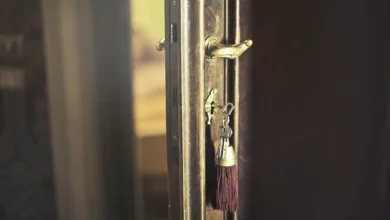How Hearing Impacts Your Life

Q & A with Dr. Brian Kaplan and The Incredible Hulk (Lou Ferrigno).
People may not realize how their hearing — or lack thereof — can impact the quality of their life and health as they age. In the U.S., a third of people 65 and over have hearing loss. But declining hearing begins long before.
Don’t dismiss hearing loss! Untreated hearing loss leads to increased social isolation and loneliness, balance issues, and risk for falls, as well as diminished brain health and mental sharpness.
fyi50+ participated in a virtual interview with Dr. Brian Kaplan and actor Lou Ferrigno. Dr. Kaplan is the Chairman of the Department of Otolaryngology and Director of the Cochlear Implant Program at the Greater Baltimore Medical Center, and Ferrigno is the Hulk from the 1977-1982 show The Incredible Hulk!
Ferrigno had untreated hearing loss since childhood. A year ago, he chose to change his life with a cochlear implant.
Ferrigno shares his journey toward a more fulfilling and robust life with his cochlear implant, and Dr. Kaplan shares some health impacts and misconceptions around hearing loss as well as solutions for better living.
fyi50+: What are the signs of hearing loss?
Dr. Brian Kaplan: Here are some symptoms and signs of hearing loss. If you answer yes to any of these questions below, get your hearing tested by a hearing health professional specializing in all hearing solutions.
While talking with others, do you:
- Strain to hear or struggle to keep up with conversations?
- Find it difficult hearing in the presence of background noise?
- Often ask people to repeat what they have said?
- Mishear what people say?
- Find yourself agreeing or nodding when you’re not sure what’s being said?
- Withdraw from conversations because it’s too difficult to hear?
- Read lips to understand what people are saying?
While doing everyday activities, do you:
- Find it difficult to hear on the phone?
- Turn up the volume on the TV or radio louder than others in the room prefer?
- Feel people are mumbling when they talk?
- Struggle to hear natural sounds, such as rain falling or birds chirping?
When you’re alone, do you:
- Hear a persistent ringing or buzzing sound in your ear?
- Find it hard to hear on one side?
- Find it hard to tell where sounds are coming from?
- Think your own voice sound different?
- Feel pain or pressure in one or both ears?
fyi50+: What is the first action someone should take when they feel they are experiencing hearing loss?
Dr. Kaplan: The first action someone should take when they feel they are experiencing hearing loss is to visit a local audiologist (hearing specialist). An audiologist can help assess the status of an individual’s hearing and recommend an appropriate treatment path. Click here to find a local provider.
We want adults to understand they need to take their hearing seriously. Just as you wouldn’t dismiss hypertension, you should not dismiss hearing loss. As a society, we should treat hearing health with as much importance as eye and orthopedic health as we age.
If left unaddressed, hearing loss poses significant challenges to healthy aging. Research has shown untreated hearing loss directly connects to increased social isolation and loneliness, balance issues, and fall risk. There’s emerging evidence associating untreated hearing loss with diminished brain health and mental sharpness.
fyi50+: What is the typical age hearing begins to lose its sharpness?
Dr. Kaplan: Hearing loss can happen to anyone at any age for various reasons, but the most common form of hearing loss is presbycusis, which is age-related hearing loss due to aging. In the U.S., half of people 75 years of age and over have hearing loss. For those 65 and over, the number is one in every three people, but declining hearing can begin long before then. If you’re 40, you may notice you already don’t hear as well on the phone or in a noisy environment as you did when you were 20. Hearing loss is part of aging.
Lou Ferrigno: I have been affected by hearing loss almost my entire life, starting as a toddler due to ear infections, and I have been relying on hearing aids since the age of four. I could not fully communicate with my family because I could not hear them clearly. I worked hard to speak and hear with hearing aids for so long. I finally learned at age 69 that with my profound hearing loss, the best hearing aid in the world would not give me the clarity in the speech I needed to understand and participate in conversations. I decided to get a cochlear implant in early 2021. It has taken me to a new level of hearing.
fyi50+: After being diagnosed with hearing loss, what are the first steps?
Dr. Kaplan: It’s essential to know your options for treating and managing your hearing loss, depending on the type and level of loss. A visit to an audiologist can help you determine your level of hearing loss and identify the best solutions to treat the current loss. Hearing aids are typically the first step to treating hearing loss and can be effective for someone with mild to moderate sensorineural hearing loss, who only needs the sound to be louder to hear.
As hearing loss progresses to severe and profound, sounds need to be louder and clearer so you can understand what someone is saying. Hearing aids help with volume but not clarity. The design of cochlear implants is to improve hearing and help people understand speech, especially in noisy environments.
fyi50+: How much hearing loss warrants a hearing aid?
Dr. Kaplan: Hearing loss has five degrees: Mild, moderate, moderately severe, severe, and profound. Hearing aids may be suitable for someone with mild to moderate hearing loss, where sound needs to be increased in volume. But for people using a hearing aid with severe to profound hearing loss, it can be like listening to a loud, poorly tuned radio. You may hear parts of the conversation or speech, it may be loud enough, but the words are not clear.
fyi50+: Can hearing loss affect patients with dementia?
Dr. Kaplan: According to a recent Johns Hopkins Bloomberg School of Public Health study, 8% of dementia cases are caused by hearing loss which can be linked to the deprivation of cognitive stimulation that keeps the brain sharp. Untreated hearing loss can also cause people to withdraw from social situations and impact their balance, increasing their risk for falls, which can negatively impact someone with dementia.
fyi50+: Do extremely loud noises, like fireworks and rock concerts, affect hearing?
Dr. Kaplan: Yes. Continuous exposure to loud sounds can cause noise-induced hearing loss (NIHL). NIHL can be temporary or permanent depending on the level of exposure — the louder the sound, the quicker your hearing will be impaired. Prolonged exposure to loud noises can also lead to tinnitus, which causes a constant buzzing, ringing, or roaring sound in the ear. For hearing protection, I recommend wearing earplugs. For those vulnerable to constant and loud noises, this includes activities that seem innocuous, like loud gym classes, theatre productions, and the symphony; it’s always essential to protect your hearing.
If you have been experiencing any of the above symptoms, do yourself a favor and schedule a hearing test. You may be fine. But if there is a change in your hearing capability, it is better to remedy it now before it gets worse.

fyi50+: What can a patient expect with a hearing aid and, for more severe cases, the cochlear implant? What are the benefits of a cochlear implant?
Dr. Kaplan: When using hearing aids, patients can expect the volume of sounds to increase. Cochlear implants deliver clarity of sound, especially speech.
For example, someone with severe to profound hearing loss only using hearing aids might hear someone speaking but have difficulty understanding what they’re saying. You might hear the vowels within a sentence but not hear the consonants, which makes comprehending a sentence almost impossible. This person is likely a candidate for a cochlear implant. Nearly two million Americans could be candidates for cochlear implant technology, but only 5% of patients who can benefit from a cochlear implant have been treated.
Recent studies have shown cochlear implant recipients are five times more satisfied with their ability to understand what is said on TV with their implant than they could with two hearing aids. They’re 11 times more satisfied with what they can hear on the phone in the same scenario.
Lou Ferrigno: After a friend went through the process of getting a cochlear implant and was hearing incredibly well, I decided to treat my profound hearing loss with a cochlear implant in early 2021. Since my implant was activated, I can now hear sounds and speech as I’ve never heard before.
I’m a grandpa and love listening to the baby sounds my grandkids make. I never heard those sounds with my kids because I couldn’t. But my cochlear implant has changed that. With my kids, I can better participate in conversations with them, and I’m excited about what the future holds in talking with and understanding my grandkids, too.
I want everyone with hearing aids and struggling to hear efficiently to know that a better quality of life can be possible with cochlear implants, especially for aging adults. Speaking to your audiologist about if you are a candidate for this technology can be a life-changing conversation. It was for me. I only wish I’d done it sooner!
fyi50+: When should a patient consider a cochlear implant? Are there distinct signs?
Dr. Kaplan: A cochlear implant is designed to provide you the best hearing experience. They help you hear more clearly, making your life easier and connecting with your world and those you love. You can choose a behind-the-ear or an off-the-ear sound processor to personalize the way you hear to best fit your lifestyle.
They are available for adults of any age with moderate to profound hearing loss who no longer benefit from hearing aids. Suppose you or a loved one are struggling to hear on the phone, constantly asking people to repeat themselves in conversation, or avoiding noisy places like restaurants because of the inability to hear. In that case, you may be a candidate for a cochlear implant.
There is a free online hearing check tool for anyone who wants to see if they may benefit from a cochlear implant. The aim is to help individuals compare their hearing performance with hearing aids to people with a cochlear implant and, depending on their results, seek further hearing healthcare advice. Check the status of your hearing now at www.CheckMyHearingAid.com.
Ferrigno: I worked hard to speak and hear with hearing aids for so long. Still, I finally learned that with my profound hearing loss, the best hearing aid in the world would not give me the clarity in the speech I needed to understand and participate in conversations. My cochlear implant has taken me to a new level of hearing.
After a lifelong struggle with hearing loss affecting how I communicate with others and in my career, I can now hear sounds and speech as I’ve never heard before. I can actively converse with people on set and engage fully with my family and grandchildren, and now that I can hear consonants like S’s, my diction has improved. It’s like I’m reclaiming my life again.
fyi50+: What does the surgery entail if a doctor and patient feel that a cochlear implant is the best option?
Dr. Kaplan: Cochlear implant surgery is routine and typically takes about two hours for one ear. The surgery is usually outpatient and performed under general anesthesia; most patients go home the same day. Cochlear implant procedures are considered safe, but like with any surgery, there are risks. Most people are back to their routine in a couple of days. Find out more about cochlear implant surgery here. Implants are activated, or “turned on,” up to four weeks following surgery at the audiologist’s office. Audiologists work with patients to fine-tune their devices for optimal hearing.
To repeat, if you have been experiencing any of the symptoms mentioned above, do yourself a favor and schedule a hearing test. You may be fine. But if there is a change in your hearing capability, it is better to remedy it now before it gets worse.
Note: Medicare, TRICARE, the Veteran’s Administration, and other federal health plans provide coverage for cochlear implants.






